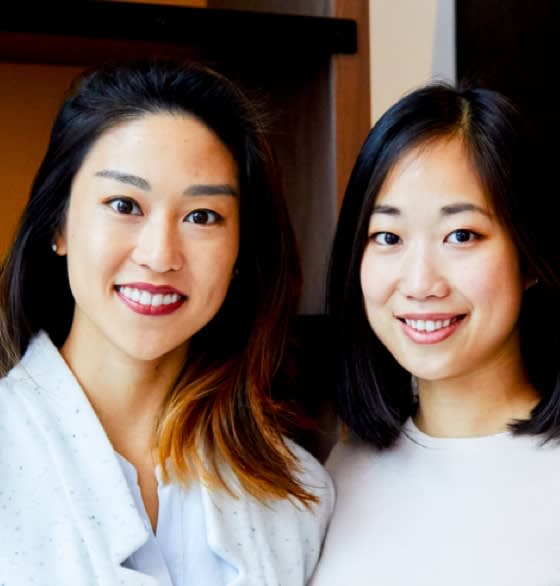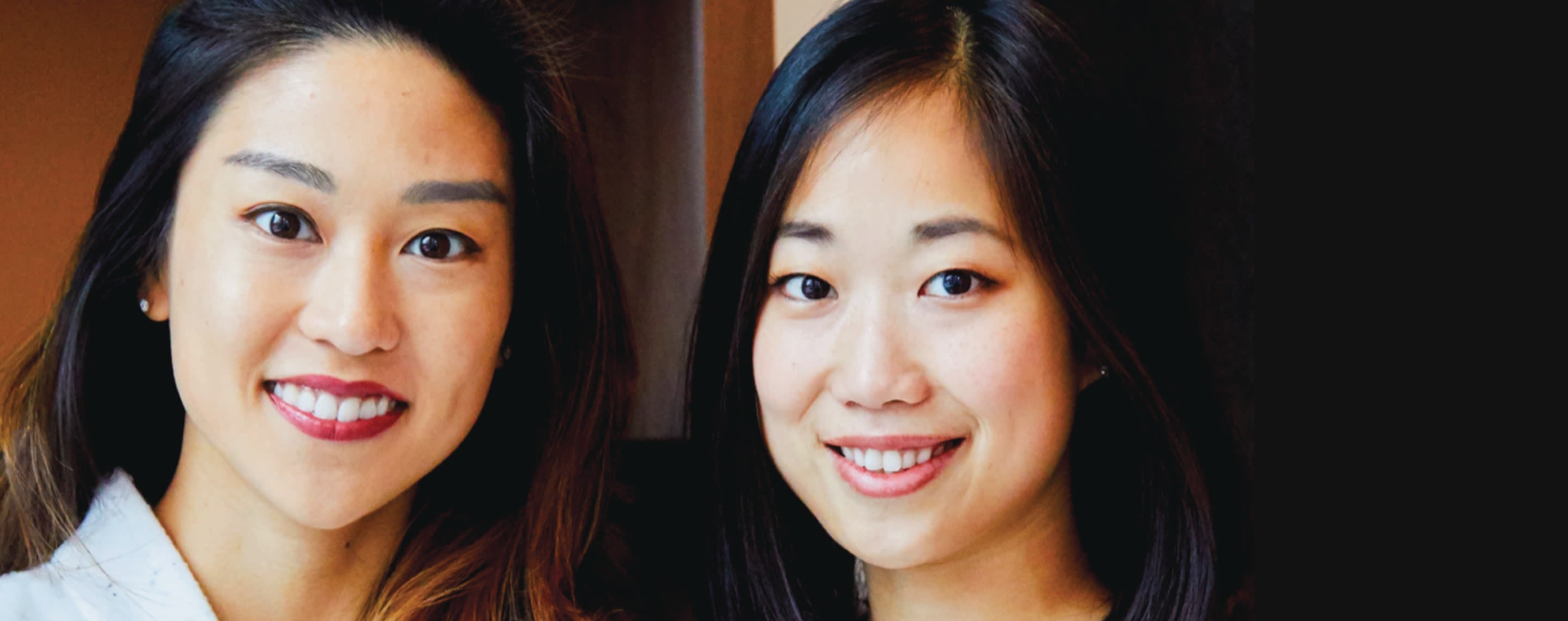Deep Dives
What Skincare Claims Get Under a Chemist’s Skin?


SHARE
Deep Dives
What Skincare Claims Get Under a Chemist’s Skin?
Medically reviewed by Aimee Paik, MD
Written by Lisa Guerrera
Last updated 4/5/2022
After meeting as chemists at beauty giant L’Oreal, Gloria Lu and Victoria Fu instantly connected over their shared love of beauty science. With Gloria’s background in lipstick and skincare formulation plus Victoria’s background in “nanotherapeutics” for acne and anti-aging skincare– it was a dream team to create one of the most informative skincare instagrams and an awesome skincare brand to boot!
We (virtually) sat down with them to get the tea on the state of skincare, claims that get under their skin, and their favorite ingredients.
Why did you start Chemist Confessions?
Gloria: We happened to leave the big corporate world around the same time. As “industry insiders”, we were the de facto skin gurus for our friends and family. We realized that the product landscape is insanely difficult for the average consumer to navigate. So we started the Chemist Confessions’ instablog as a fun side project to share our chemist perspective and see if it could help people navigate the skincare world and make better shopping decisions for their skin.
How do you both feel about the state of skincare today?
Gloria: I think it’s inching towards the right direction. We see that consumers are getting more and more educated. It truly drives the industry to do better. Even though in execution, we still see a good amount of fear mongering and half-truths baked in products, I believe that the general direction is better, more transparent products.
Victoria: Cautiously optimistic. There’s still a lot of noise out there on the interwebs and clean lists can get out of hand. Despite all that, the overall growth of clean beauty means consumers are starting to pay attention and are demanding for better skincare. Ultimately consumers will drive change within the industry so overall we’re headed in the right direction.


What are some ingredient trends you’ve seen across skincare brands and how do you feel about them?
Victoria: Hmm, interestingly we see some oldies getting paraded around like trendy ingredients again such as hyaluronic acid and retinol, which is great! These ingredients only have more data now to not just show that they work, but a better understanding of how to formulate with them as well. With retinol being hot on the map again, there are also retinol alternatives and derivatives such as bakuchiol and granactive retinol. These have early, promising data. We wouldn’t exactly recommend them over good old retinol, but are great options for beginners or those with sensitive skin.
Gloria: We have noticed some brands that abuse this trend by using what we called “fluffy % marketing” though. They use claims such as 4%, 5% retinol when the reality is they are using a retinol-containing raw material at that %. This is such a pet peeve for us! It confuses the consumer on what is the % they actually need and pushes brands to get creative so they can claim an even higher fluffy %.
What are your top 3 favorite ingredients?
Gloria: glycolic acid, L-ascorbic acid, petrolatum
Victoria: retinoids, ceramides, and…the third really fluctuates... really into gluconolactone right now.
What skincare misinformation really gets under your skin?
Gloria: the fluffy% marketing mentioned above REALLY grinds my gears. We tout “dose makes the elixir” on our Instagram. And brands who abuse this with half-truth concentrations and faux science makes our jobs a lot harder! To me, that’s worse than a blatantly absurd claim a la Goop.
Victoria: As Gloria mentioned, the misleading “transparent" percentages are the worst. A close second is any sort of “chemical free”, “non toxic chemicals”, type claims definitely causes some eye twitching. Let’s not forget that water is a chemical people. As a knee jerk reaction to all the chemical shaming, we’ve seen DIY sunscreen being sold at farmers markets. This is not the way.


There are a lot of people across social media claiming to be the “experts” in skincare. But don’t have certain qualifications to back that up. How do you feel about that as chemists in the skincare space?
Gloria: it’s a bit exhausting… it feels like for every one of “us” you have 10 more influencers without actual credentials masquerading around as experts. On the other hand, I feel like there’s also some actual experts who get too comfortable overstepping their knowledge base through social media. For example, we never answer what we consider to be more doctor questions (pregnancy or prescription-needed questions). We also point people to aestheticians if we feel like their expertise can better solve their problem. But too many experts get too comfortable advising on what they don’t actually know a lot about, and that causes a lot of confusion.
When it comes to the chemist confessions brand, what is your formulation philosophy?
Victoria: First and foremost, we use ingredients (natural or synthetic) that have withstood the test of time in terms of safety and efficacy. Secondly, we don’t create just to put more stuff out there. It’s not very satisfying to us as chemists to make another 5 step regimen. We only formulate what we think can make a meaningful difference in that space. Thus our collection is lean but they really go to work :)
COVID is having big impacts on the beauty industry, do you think it will impact consumers perception of preservatives?
Victoria: That’s an interesting question! Hopefully this means people will be more skeptical of those “preservative-free” claims going forward. But I believe what’s already tossed under the bus isn’t coming back…RIP parabens. Also with all the hand sanitizer use, there’s probably going to be renewed awareness around alcohol’s potential to cause dryness…even though it’s used at a much much higher level than in the average skincare product.
So @chemist.confessions now has over 100k followers! What are the learnings you have around growing a following and educating consumers about skincare?
Victoria: Haha I still feel like a student with this whole blog thing despite being at it for almost 3 years. The first learning is very generic and cheesy: stay true to yourself. Most things in skincare science are not as black and white as the internet makes it seem. So we try to remain as objective as we can with topics. We simply present the data and let the readers decide for themselves where they stand. This definitely goes against the average content you’ll find which takes a more decisive stance. As a result we’ve created a really unique following that values a more “grey” perspective. The content is a lot easier to write too! The other learning is that the skincare community is truly eager to research, learn, and help each other find better skincare. The best example of this is our community polls. It’s one of my favorite posts because everyone is so eager to help lost souls struggling. There’s definitely still a lot of work to be done but the community gives us a lot of motivation.
Want to ask a chemist your skincare questions? Follow them @chemist.confessions on Instagram!
Like what you just read? Sign up for our email list to get the scoop on skincare science delivered straight to your inbox.

Deep Dives
A dermatologist shares his thoughts on the recent studies about benzoyl peroxide and benzene.
Read More
Education
What is milia?
What is milia? Today, we’re jumping into one type of bump that you may have heard about most commonly in infants — milia.
Read More
Education
Best moisturizer for acne-prone skin
If you have combination acne-prone skin, figuring out which moisturizer is best for your skin might be tough. In this guide, we break down the best moisturizer for combination, acne-prone skin.
Read More